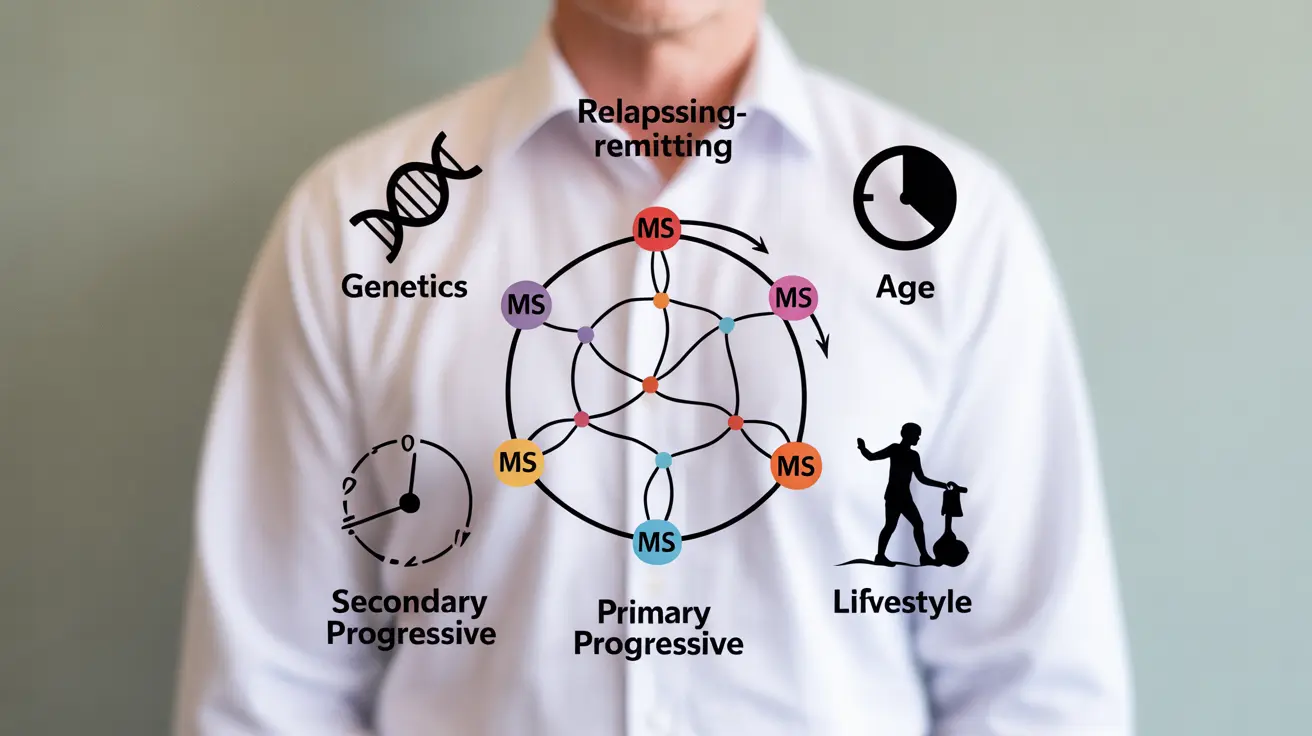Multiple sclerosis (MS) is a complex neurological condition that affects everyone differently. One of the most common questions people have after diagnosis is whether their MS will inevitably get worse over time. Understanding how MS typically progresses can help patients and their families better prepare for the future and make informed decisions about their care.
While MS is a chronic condition, its progression isn't uniform or predictable. Some people experience minimal progression over many years, while others may face more rapid changes. Let's explore the factors that influence MS progression and what current research tells us about managing the condition.
Types of MS and Their Progression Patterns
Multiple sclerosis typically follows several distinct patterns of progression, each with its own characteristics:
Relapsing-Remitting MS (RRMS)
The most common form of MS, RRMS, is characterized by clearly defined attacks of new or worsening symptoms followed by periods of partial or complete recovery. During remission periods, the disease doesn't progress, though some residual symptoms may remain.
Secondary Progressive MS (SPMS)
Many people with RRMS eventually transition to SPMS, where the disease steadily progresses with or without relapses. This transition typically occurs over several years, and the rate varies significantly among individuals.
Primary Progressive MS (PPMS)
A smaller percentage of people experience PPMS, where symptoms gradually worsen from the onset without early relapses or remissions. This form shows a different progression pattern from RRMS.
Factors Influencing MS Progression
Several key factors can impact how quickly MS progresses:
- Age at diagnosis
- Genetic factors
- Environmental influences
- Lifestyle choices
- Treatment adherence
- Overall health management
The Role of Disease-Modifying Therapies
Modern disease-modifying therapies (DMTs) have significantly changed the outlook for many people with MS. These medications can:
- Reduce the frequency and severity of relapses
- Slow disease progression
- Delay the transition from RRMS to SPMS
- Improve quality of life
Early treatment with DMTs often leads to better long-term outcomes, highlighting the importance of prompt diagnosis and treatment initiation.
Lifestyle Factors and MS Progression
Several lifestyle choices can influence the course of MS:
Positive Influences
- Regular exercise and physical activity
- Balanced nutrition
- Adequate rest and stress management
- Regular medical check-ups
Negative Influences
- Smoking
- Excessive alcohol consumption
- Chronic stress
- Poor sleep habits
Frequently Asked Questions
Does multiple sclerosis always get worse over time, or can it remain stable?
MS doesn't always get worse over time. With proper treatment and management, many people with MS can maintain stable periods for extended durations. The progression varies significantly among individuals, and modern treatments can help slow or stabilize the disease course.
What factors influence how quickly MS progresses from relapsing-remitting to progressive forms?
Several factors influence MS progression, including age at onset, genetic predisposition, lifestyle choices, early treatment initiation, and adherence to disease-modifying therapies. Environmental factors and overall health management also play crucial roles.
How do disease-modifying therapies affect the progression of MS?
Disease-modifying therapies can significantly impact MS progression by reducing relapse frequency, slowing disability progression, and potentially delaying the transition to secondary progressive MS. Early treatment typically leads to better outcomes.
What is the difference between relapsing-remitting MS and primary progressive MS in terms of disease progression?
RRMS features distinct attacks followed by periods of recovery, while PPMS shows steady progression from the onset without clear relapses or remissions. RRMS may eventually transition to SPMS, whereas PPMS follows a different trajectory from the beginning.
Can lifestyle choices like smoking impact the speed of MS progression?
Yes, lifestyle choices significantly affect MS progression. Smoking has been shown to accelerate disease progression and increase relapse rates. Maintaining a healthy lifestyle, including regular exercise, proper nutrition, and stress management, can help manage MS progression more effectively.




